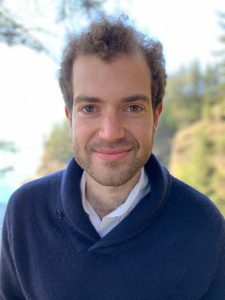How did you become interested in your BIAAS-related research project?
The socialist calculation debate, which began with an article published by Ludwig von Mises in 1920, transformed both how economists describe markets, and how philosophers and historians of science understand the character of human knowledge. I chose this topic for my dissertation after a long conversation over Zoom with a good friend during the winter of the pandemic. We realized that although scholars remain fascinated by this debate and have a sense of its importance, there is almost no historical research on the topic. Economists produced several valuable analyses of the socialist calculation debate at the time of the Soviet Union’s demise. But history did not end in 1989. Given the dramatic evolution of capitalism and the mixed economy since then, we thought a new approach to the problem of calculation would be worthwhile.
What is the significance of the transatlantic history between the US and Austria in your work? And, if this pertains to your work, how does looking at the transatlantic relationship enrich your research subject?
Mises, Hayek, and other participants in the socialist calculation debate had postwar careers in the United States. For this reason, the history of the debate is in part a history of the ascent of American power, and of the Americanization of economics.
What is a must-read book for your topic?
Klarë Tisch’s thesis, Wirtschaftsrechnung und Verteilung im zentralistisch organisierten sozialistischen Gemeinwesen (Wuppertal-Elberfeld: H. Scheschinskl, 1932), is an essential and enjoyable introduction to the socialist calculation debate. Tisch was a student of Joseph Schumpeter. She anticipated the mathematical contributions of later, better-known economists, such as Oskar Lange, with admirable rigor and a winning sense of humor.
What resource (website, archive, book, etc.) do you return to often and why?
I am obsessed with Oskar Morgenstern’s diaries, which are fully digitized and publicly available online thanks to a collaboration between the Archive for the History of Sociology in Austria in Graz and the Center for the History of Political Economy at Duke University. The diaries make for wonderful reading. They offer an intimate portrait of a young man coming of age in a difficult time and growing old in a changed world. Link: http://gams.uni-graz.at/context:ome
Which scholar(s) do you admire the most? Why?
I read Mary Morgan’s The World in the Model before beginning my graduate program. I try to emulate her scholarship – patient, attentive, and imaginative.
What is your favorite off the beaten path locale in the Austria/Habsburg lands?
I have longed to see Przemysl, the birthplace of my great-grandfather. I look forward to making the trip soon.
If you could meet with any Austrian/Habsburg figure of present or old, who would it be? Why? What would you want to ask them or talk about?
I would talk with Marie Jahoda if I could. She was the primary author of Marienthal: The Sociography of an Unemployed Community, which is really a masterpiece of twentieth-century social science. I’d like to ask her what she thought of the leadership of the SDAP during the First Republic, and about her clandestine activities under the Schuschnigg regime.
What are you currently reading? Or watching?
I’m watching the Netflix series Babylon Berlin to practice my conversational German. I’m continually delighted by the show’s sensitivity and historical fidelity in imagining the interwar world. This is particularly true with respect to contemporary science, technology, medicine. I showed my students a clip, too.
I’m reading Zachary D. Carter’s new biography of Keynes, The Price of Peace. It’s a marvelous book that reminds me of all the reasons I love economic history.

